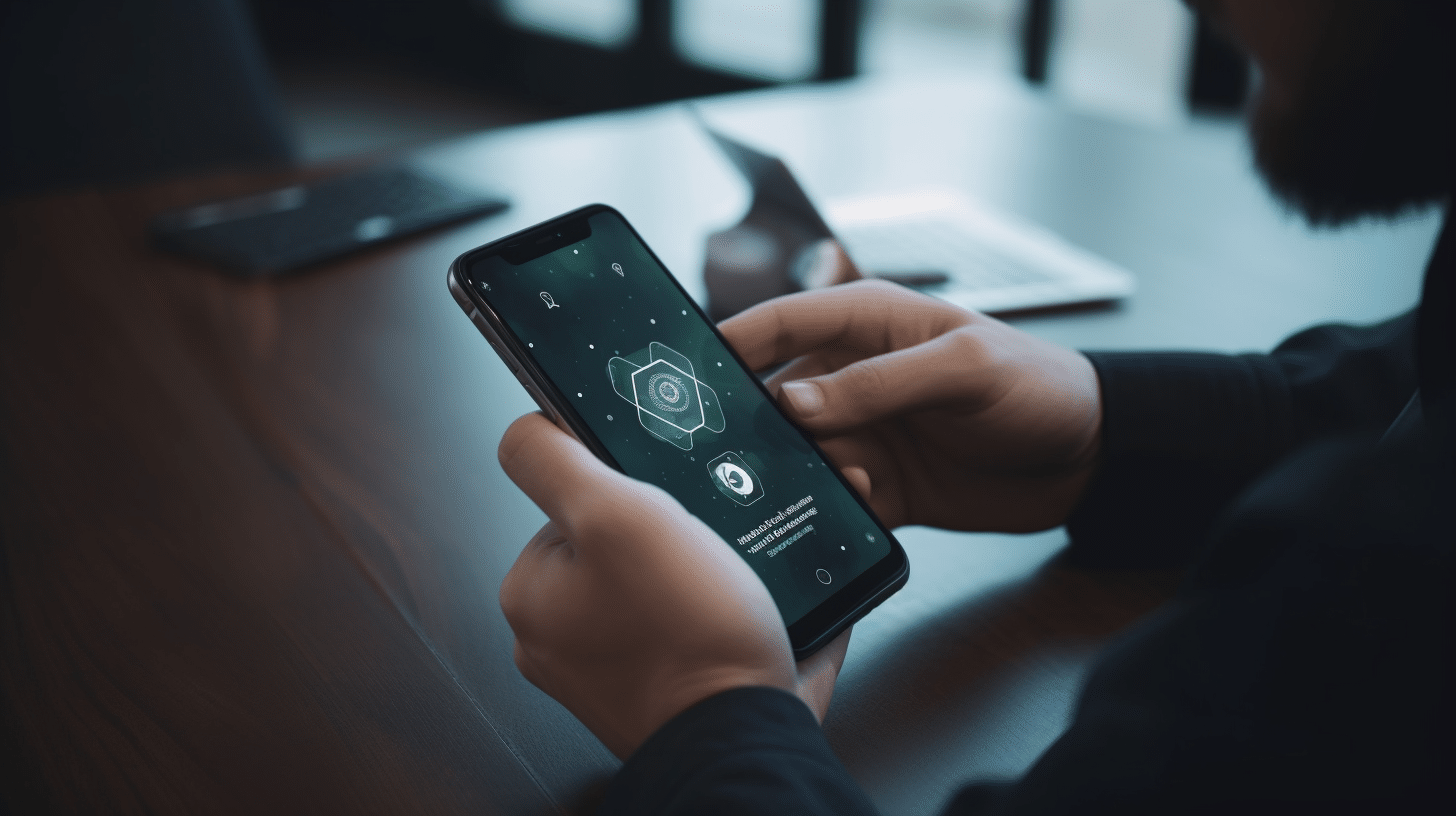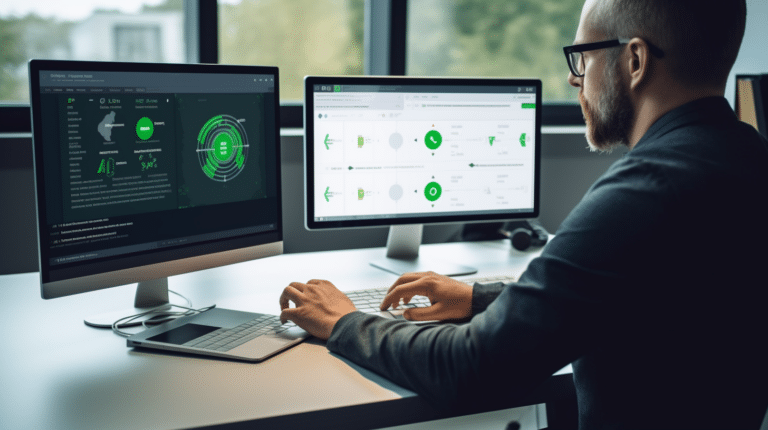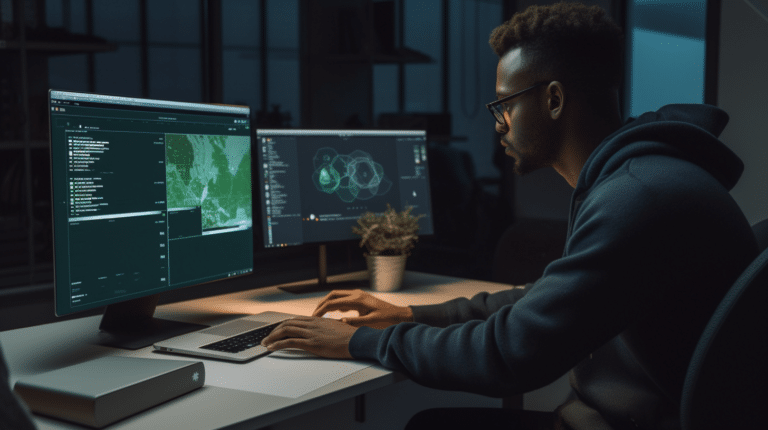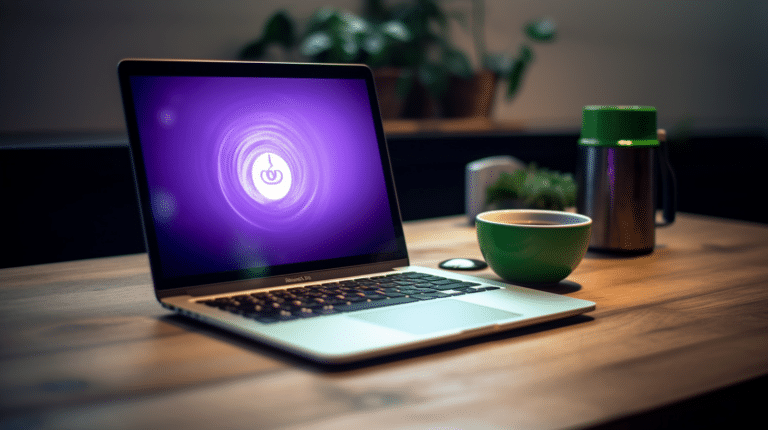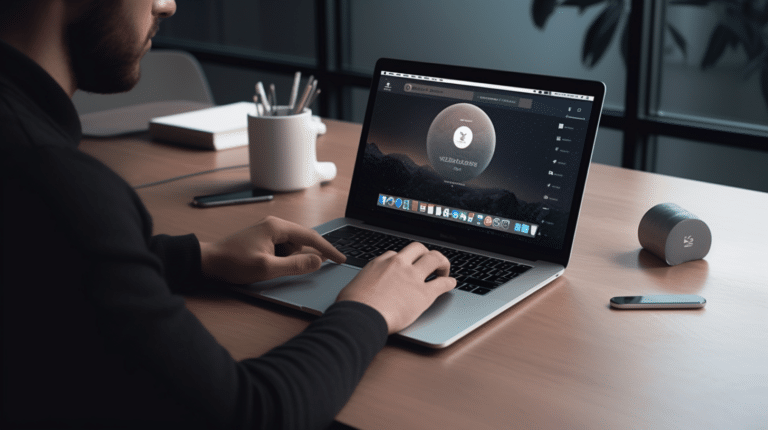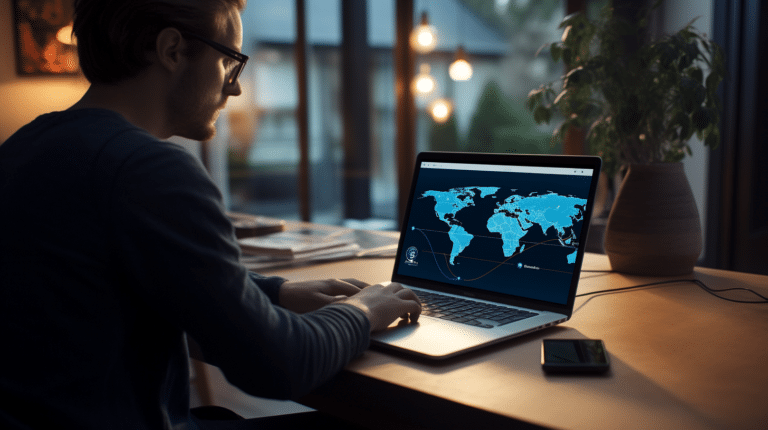As internet users become increasingly concerned about their privacy and security, many are turning to tools such as VPNs to protect their data. A VPN, or Virtual Private Network, encrypts your internet connection and hides your IP address, allowing you to surf the web anonymously. While a VPN is an excellent tool for maintaining privacy, some users wonder if it can also protect them from viruses and malware.
Viruses and other malicious software pose a significant threat to your device and personal information. Antivirus software is designed specifically to recognize and block these threats. However, a VPN does not have built-in features to detect or block viruses. Instead, it focuses on protecting your data from being intercepted by unauthorized parties. In this context, it’s essential to understand the differences between VPNs and antivirus solutions, as well as how they can work together to keep you safe online.
Key Takeaways
- VPNs focus on privacy and data encryption, not virus protection
- Antivirus software is crucial for detecting and blocking malware threats
- Combining a VPN with antivirus software provides comprehensive online protection
Understanding VPNs and Viruses
What is a VPN
A VPN (Virtual Private Network) is a technology that allows users to securely access the internet by creating an encrypted connection between their device and a remote server. This helps to protect your privacy and personal information from hackers, government surveillance, and other third parties. Furthermore, a VPN can also help you access geo-restricted content by masking your original IP address and making it appear as if you are connecting from a different location.
What are Viruses
Computer viruses are malicious programs or code that can infect your computer, replicate themselves, and cause various types of damage to your system, data, or software. They are typically spread through email attachments, software downloads, or other online activities. Computer viruses can lead to data loss, system crashes, identity theft, and other negative consequences.
While it’s crucial to understand the functions of VPNs and computer viruses, it’s important to note that a VPN is not designed to protect you from viruses. Instead, the primary purpose of a VPN is to safeguard your privacy and data security on the internet. Antivirus software, on the other hand, is specifically designed to detect, block, and remove viruses and malware from your device.
In conclusion, a VPN can be a valuable tool for enhancing your online privacy and security, but it should be used in conjunction with antivirus software for comprehensive protection against computer viruses and other threats.
VPN and Privacy
How VPNs Protect Privacy
A VPN, or Virtual Private Network, is a tool that helps protect your online privacy and enhance the security of your internet connection. It does so by creating a secure tunnel between your device and a VPN server, encrypting all data transferred between them. This encryption ensures that your personal information, browsing history, and other online activities are hidden from your ISP, hackers, and third parties who might be monitoring your internet traffic 1.
Additionally, a VPN can mask your real IP address and assign you a new one from the VPN server you are connected to. This can further enhance your privacy and anonymity, as your real location is concealed from websites and services you access online 2.
It’s important to note that while a VPN provides a layer of protection for your privacy and personal information, it does not protect you from viruses or malware 3. To safeguard your device from these threats, you should use antivirus software along with a VPN.
Importance of Privacy
Now more than ever, maintaining your online privacy is crucial. With the wide availability of personal information on the internet, identity theft, fraud, and other online crimes have become increasingly common. A VPN can help counter these threats by keeping your sensitive data and online activities private and secure.
Moreover, a strong online privacy can help protect your freedom of expression and prevent censorship or surveillance by governments and other organizations. By using a VPN, you can ensure that your internet browsing is free from interference and that your personal information remains confidential.
Although a VPN can contribute significantly to your online privacy, it is essential to recognize that it is not a comprehensive solution. Take additional measures such as using strong, unique passwords, enabling two-factor authentication, and keeping your software up-to-date to further protect your privacy and enhance your online security.
VPN and Security
VPN Security Measures
A VPN, or Virtual Private Network, is a technology primarily used to safeguard your privacy and secure your internet connection. It does this by creating an encrypted tunnel between your device and a VPN server, making it difficult for anyone, including hackers and government agencies, to intercept or monitor your data.
Some security measures employed by VPNs include:
- End-to-end encryption: This ensures that your data is encrypted throughout its journey from your device to the VPN server.
- IP address masking: Your real IP address is hidden, and you are assigned a new one from the VPN server, making it difficult to track your online activities.
- Kill switch: In case of connection drops, this feature prevents your data and identity from being exposed by instantly cutting off internet access.
How VPN Protects Your Data
A VPN primarily protects your data through encryption. When you use a VPN service, your internet traffic passes through an encrypted tunnel, making it unreadable to anyone attempting to intercept it. This includes hackers, ISPs, and government surveillance agencies.
By using a strong encryption algorithm, a VPN ensures that even if someone could access your data, they would still be unable to read or decipher it. Additionally, when your data reaches the VPN server, it is decrypted and sent to the destination website. However, your real IP address is hidden, and the website sees the VPN server’s IP address instead, which helps protect your anonymity.
Keep in mind that a VPN is not designed to protect your device from viruses or malware. Its main purpose is to secure and maintain the privacy of your data during transmission (source). For protection against viruses, it is essential to use reputable antivirus software in conjunction with a VPN.
In summary, VPNs play a critical role in enhancing your online security by employing robust encryption techniques to keep your data safe, masking your IP address to preserve your anonymity, and using various security features such as kill switches to ensure minimal exposure in case of connection drops. However, it’s crucial to remember that VPNs are not a substitute for antivirus software and should be used together to maintain a safe online environment.
The Limits of VPN Protection
Does VPN Prevent Viruses?
While a VPN is a powerful tool for online privacy and security, it is not specifically designed to protect your computer from viruses. A VPN can help to secure your data and traffic on the internet from hackers and surveillance; however, it is not a replacement for proper antivirus software. Having a reliable antivirus program is essential to defend your system against malicious software and attacks. Antivirus software scans for and removes malware, whereas VPNs focus on encrypting your data and masking your IP address.
What a VPN Can’t do
- Detect and Remove Malware: A VPN cannot scan files or websites for malware, so you need a dedicated antivirus program to help with that task. Make sure to keep your antivirus software up-to-date to stay protected against the latest threats.
- Prevent Targeted Hacking: Although a VPN can hide your IP address and provide an encrypted connection, a determined hacker could still potentially find other ways to target you through social engineering, phishing, or exploiting vulnerabilities in your software. It’s important to stay vigilant and practice good security habits beyond using a VPN.
- Stop Zero-Day Threats: Some new malware can exploit previously unknown vulnerabilities in commonly used software. Your antivirus program may not be able to detect these zero-day threats immediately. In these cases, a VPN cannot provide any protection against the virus, since it has no ability to scan or detect malware.
- Guarantee Complete Anonymity: While VPNs do a good job of masking your real IP address and encrypting your internet connection, they cannot guarantee complete anonymity. Some VPN providers may keep logs of your activity or may be obliged to provide user data to law enforcement or government entities under certain circumstances.
In summary, it is essential to pair a VPN with a robust antivirus program to maintain maximal protection from online threats. A VPN offers valuable security and privacy benefits, but is not a substitute for a comprehensive defense against malware and other internet risks.
Role of Antivirus Software
Antivirus software plays a crucial role in safeguarding your computer and valuable data from malicious threats such as viruses, malware, and other cybersecurity dangers. In this section, we will explore how antivirus detects viruses and the timeline of antivirus protection to better understand the significance of these programs.
How Antivirus Detects Viruses
Antivirus programs utilize a variety of methods to identify and combat viruses, such as:
- Signature-based detection: This method involves comparing known virus signatures (patterns of code) to files on your computer. If a match is found, the antivirus software takes action to neutralize the threat.
- Behavioral analysis: Antivirus software monitors the behavior of applications and processes on your system. If an unusual or suspicious activity is detected, the antivirus flags it as potentially malicious and takes appropriate action.
- Heuristic analysis: Heuristic algorithms help antivirus programs detect unknown or new variants of known viruses. They analyze the code structure of files, searching for patterns and similarities to previously identified threats.
- Sandboxing: Some antivirus software temporarily runs a potentially harmful file in an isolated environment (a sandbox), allowing the antivirus to monitor the file’s activities without endangering the host system.
Timeline of Antivirus Protection
The development of antivirus protection has evolved in tandem with the increasing complexity and variety of digital threats. Here’s a brief timeline of the key milestones in antivirus history:
- 1980s: The first antivirus software emerged as a response to the early computer viruses. These programs primarily relied on signature-based detection to identify threats.
- 1990s: As malware became more sophisticated, antivirus software started incorporating heuristic analysis to detect unknown threats. Internet usage grew during this decade, increasing the risk of malicious software spreading online.
- 2000s: The rise of zero-day attacks prompted antivirus developers to introduce behavioral analysis techniques to their software. Additionally, email and web filtering features were added to prevent the spread of viruses through email attachments and malicious websites.
- 2010s: With the proliferation of smartphones and cloud-based services, antivirus protection expanded to cover mobile devices and cloud storage. Moreover, sandboxing capabilities were integrated into some antivirus solutions to enhance threat detection and containment.
In conclusion, antivirus software plays an essential role in protecting digital systems from various threats, and their strategies have been continually evolving over time. However, it’s important to note that, while antivirus protection is crucial, having a VPN does not directly protect you from viruses. Combining an antivirus program with a VPN will ensure comprehensive security of your device and data.
Combination of VPN and Antivirus
Layered Approach to Security
When it comes to online security, using both a VPN and antivirus software can provide a layered approach to better protect your devices and data. A VPN mainly encrypts the data you send and receive, while antivirus software scans and blocks malware that might infect your devices.
- VPN: A VPN protects your data during transmission, helping prevent hackers, ISPs, and other third parties from intercepting your personal information and browsing activities. This is particularly important when using public Wi-Fi or other unsecured networks.
- Antivirus Software: Antivirus protection focuses on keeping your devices safe from viruses, ransomware, and other malicious software that can compromise your data, files, and device functionality.
Combining a VPN with reliable antivirus software ensures that your online and local security needs are being addressed.
Choosing the Best VPN and Antivirus
When selecting a VPN and antivirus, it’s important to consider your specific security needs and pick products that have been highly rated and trusted by users and experts alike.
Best VPN – When evaluating VPN services, look for features such as:
- Strong encryption methods
- Strict no-logs policy
- Fast connection speeds
- Wide range of server locations
- Compatible with multiple devices and platforms
Some reputable VPNs like NordVPN and others offer additional security benefits, such as a kill switch or advanced encryption methods.
Best Antivirus – Always opt for antivirus software that provides:
- Real-time scanning and continuous updates
- Protection against multiple types of malware threats
- Minimal performance impact on devices
- Safe browsing features and email protection
- Positive user reviews and expert recommendations.
In conclusion, while a VPN and an antivirus software serve different purposes, combining them offers a stronger protection against a variety of online threats. Be sure to select the best VPN and antivirus that suits your needs, so you can confidently and securely navigate the digital world.
VPN, Security and Geolocation
Virtual Private Networks (VPNs) provide a layer of security and privacy for internet users by encrypting their online traffic. However, VPNs are not a comprehensive solution against viruses and malware. While they can help prevent some attacks, it’s still crucial to have antivirus software installed for complete protection against viruses and other types of malware1.
Accessing Geo-restricted Content
VPNs can mask your IP address and make it appear as if you’re browsing from a different location, which helps in accessing geo-restricted content. This allows users to bypass regional restrictions on websites, streaming services, and online games. By connecting to a VPN server in the desired country, users can enjoy a more open and diverse online experience. However, it’s important to note that some countries, such as China and Russia, have strict VPN regulations.
VPN Usage in Different Countries
In China, the government heavily regulates and censors the internet, blocking popular websites and platforms like Google, Facebook, and Twitter2. China has made it difficult for VPN providers to operate within its borders, and only a limited number of VPNs are authorized by the government. Using unauthorized VPNs in China can lead to fines, and in some cases, criminal prosecution.
Russia has also introduced strict laws regarding VPN use3. The government passed legislation requiring VPN providers to block access to websites banned by the Russian authorities. Unauthorized VPNs are also actively targeted and could face penalties if caught operating in the country.
Overall, VPNs offer numerous benefits in terms of security and accessing geo-restricted content, but it is essential to be aware of regional restrictions and legal implications when using them, especially in countries like China and Russia.
Frequently Asked Questions
Does a VPN safeguard against malware infections?
A VPN does not specifically protect against malware infections. While it encrypts your internet connection and hides your IP address, it does not detect or block malware. You would need reliable antivirus software to protect your devices from malware infections effectively.
Can a VPN prevent hackers from accessing my device?
VPNs can provide a layer of security against hackers by encrypting your data and hiding your IP address, which can make it more difficult for hackers to target you. However, a VPN alone cannot guarantee complete protection from hackers. It’s essential to use strong passwords, update software frequently, and apply other cybersecurity best practices.
Is a VPN a substitute for antivirus software?
No, a VPN is not a substitute for antivirus software. A VPN focuses on securing your online connections and maintaining privacy, while antivirus software is designed to detect and remove viruses, malware, and other threats. It’s essential to use both a VPN and antivirus software for comprehensive protection.
Can a VPN shield against phishing attacks?
A VPN does not specifically protect against phishing attacks. However, it can help conceal your IP address and location, making it more difficult for phishing sites to target you directly. Using a VPN in combination with antivirus software that detects and blocks phishing attempts can increase your online security further.
Does using a VPN on public Wi-Fi provide additional security?
Yes, using a VPN on public Wi-Fi can provide additional security by encrypting your data, making it unreadable to potential attackers. This can protect you from man-in-the-middle attacks, where hackers can intercept and access your data on shared networks.
Are free VPNs safe to use on Android devices?
While some free VPNs might be safe, they often come with limitations and potential risks. Free VPN services typically have slower speeds, data caps, and may lack strong encryption or privacy policies. They may also show invasive advertisements or sell your data. It’s generally recommended to use a reputable, paid VPN service for better protection and performance.
